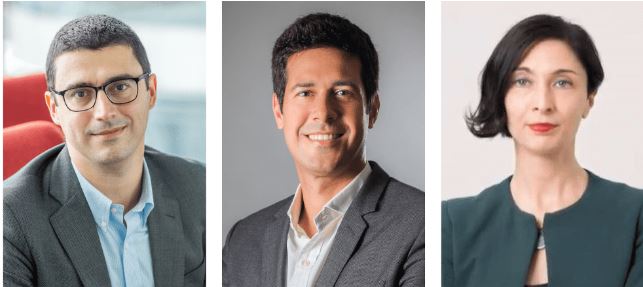16th FINANCIAL RISKS INTERNATIONAL FORUM: “Finance & Society”

The Institut Louis Bachelier, in cooperation with the Fondation du Risque, the Europlace Institute of Finance and the Louis Bachelier "Finance and Sustainable Growth" Laboratory, is pleased to invite you to the 16th Financial Risks International Forum. This year’s forum will focus on the theme: “Finance & Society”.
What is the benefit of finance for society? Finance interacts with all parts of our daily lives, politics and the economy. Numerous economic theories have emphasized the crucial role played by the financial sector to our society: managing risks, allocating capital, providing price signals, reducing agency issues, benefitting economic development. But economists’ views are not necessarily shared by society at large. After the Subprime crisis, trust in banks dropped. Finance is perceived as a rent- seeking activity. Defi is developed as an alternative to traditional finance. It is difficult to restore trust, despite advances in regulation and the development of sustainable finance.
This upcoming 16th Financial Risks International Forum aims to discuss the interactions between finance and society, and the contributions of financial innovations, regulation, green finance and financial technology to our society.
Guest Speakers for the 2023 edition are:
• David THESMAR, Franco Modigliani Professor of Financial Economics, MIT
• Tarun RAMADORAI, Professor of Financial Economics, Imperial College London
EDHEC Business School and EDHEC-Risk Climate are proud to have three professors invited to join the great line of speakers at 16th Financial Risks International Forum #RiskForum:

- March 20 - from 3:00pm - Parallel Session 1 - Physical Risks and Adaptation Finance
Irene Monasterolo, Research Programme Director (Impact of Finance on Climate Change Mitigation and Adaptation), EDHEC-Risk Climate Impact Institute and Professor of Climate Finance, EDHEC Business School, will present her paper entitled "Climate Transition Spillovers and Sovereign Risks", co-written with Regis Gourdel (WU Vienna) and Kevin GALLAGHER (Boston University).
In this paper, they analyze the impact of climate transition spillover risk, resulting from the introduction of carbon pricing in China, on the macroeconomic competitiveness and public financial stability of Indonesia, a major coal producer and exporter to China. By tailoring the EIRIN Stock-Flow Consistent behavioral model, they quantify the impact of a shock on Chinese demand for Indonesian coal, consistently with the scenarios developed by the Network for Greening the Financial System, on the Indonesian balance of payment economic performance and sovereign risk. They find that transition spillover risk directly and negatively affects the balance of payment .
In the same session, Vienna University of Economics and Business Professor Giacomo Bressan, will present work co-authored by Professor Monasterolo, Anja Duranovic, Research Assistant, EDHEC-Risk Climate, Stefano Battiston, University of Zurich, Ca’ Foscari University of Venice, and titled "Asset-Level Climate Physical Risk Assessment is Key for Adaptation Finance".
- March 20 - from 5:30pm - Parallel Session 4 - Investors' preference for ESG
Olivier David Zerbib, Associate Professor of Finance, EDHEC Business School, Affiliate Member, EDHEC-Risk Climate Impact Institute, will present his paper entitled "When Green Investors Are Green Consumers", co-written with Maxime Sauzet (Boston University).
They bring investors with preferences for green assets to a general equilibrium setting in which they also prefer consuming green goods. Their preferences for green goods induce consumption premia on expected returns that counterbalance the green premium stemming from their preferences for green assets. Because they provide a hedge when green goods become expensive, brown assets command lower consumption premia, and green investors allocate a larger share of their portfolios towards them. Empirically, the green-minus-brown consumption premia differential reached 30-40 basis points annually, and contributes to explaining the limited impact of green investing on polluting firms’ costs of capital..
- March 21 - from 2:15pm - Parallel Session Plenary P2 - Volatility and Tail Risk
Thomas GIROUX will present his paper entitled "Tail Risk Systemic Factors", co-written with Erwan KOCH, Christian-Yann ROBERT, and Professor Zerbib.
They develop a two-step econometric procedure, based on hidden factor estimation, to identify common factors driving the tail risk of asset returns. Applied to more than 1500 US stocks, using quarterly returns ranging from 2000 to 2020, they find that the equicorrelation and the market volatility are two signifiant drivers of assets’ tail risks, explaining up to 50% of the total variance. Drawing on a parsimonious model supporting the estimations, they show that investors accept a thinner tail when the market correlation increases and require a heavier tail when market volatility increases.
- March 21 - from 4:00pm - Parallel Session 11 - Climate Risk of Portfolios
Mirco Rubin, Professor of Finance, EDHEC Business School, will present his paper entitled "Time-varying Environmental Alphas, Betas, and Latent Factors in Corporate Bonds", co-written with Emanuele Chini, Former Research Engineer, EDHEC-Risk Climate Impact Institute, Dario RUZZI and Salvatore CARDILLO, Bank of Italy.
For registration and programme for this conference that will take place at Chambre de Commerce et d’Industrie on March 20-21, go to Institut Louis Bachelier (ILB) website.


